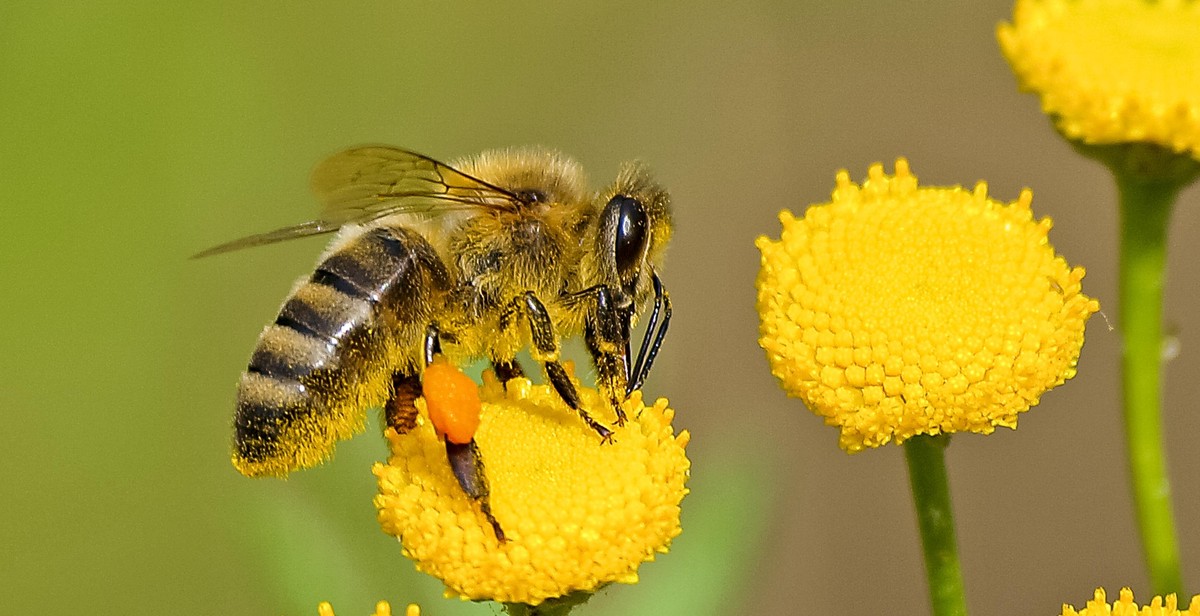How to Create a Natural Insect Repellent: DIY Recipes for Safe and Effective Pest Control
Are you tired of using harsh chemical insect repellents that not only harm the environment but also pose a risk to your health? If so, you’ll be happy to know that there are natural alternatives that can protect you from pesky insects without the negative side effects.
Creating your own natural insect repellent is easy, cost-effective, and can be tailored to your specific needs. Whether you’re looking to keep mosquitos at bay during a camping trip or want to protect your garden from harmful pests, there’s a recipe for every situation.
The Benefits of Natural Insect Repellents
Natural insect repellents offer several benefits over their chemical counterparts. For one, they are safer for both humans and the environment. Chemical insecticides can be harmful if ingested or absorbed through the skin, and they can also contaminate soil and water sources.
Additionally, natural insect repellents are often just as effective as their chemical counterparts. Many essential oils and herbs have insect-repelling properties that have been proven to work in scientific studies.
DIY Recipes for Natural Insect Repellents
There are countless recipes for natural insect repellents, but some of the most effective include:
- Lemon eucalyptus oil
- Lavender oil
- Citronella oil
- Peppermint oil
- Cedarwood oil
These oils can be combined with other ingredients like witch hazel, apple cider vinegar, and distilled water to create a spray that can be applied to skin or clothing.
For a more comprehensive list of natural insect repellent recipes and tips for their use, keep reading!
Why Use Natural Insect Repellents?
Chemical insecticides have been the go-to solution for pest control for many years. However, the health risks associated with these products have become a growing concern for consumers. The active ingredients in chemical insecticides, such as DEET and permethrin, have been linked to a range of health problems, including skin irritation, respiratory issues, and even cancer.
Furthermore, the environmental impact of chemical insecticides cannot be ignored. These products are harmful to not only pests but also beneficial insects, such as bees and butterflies, and can contaminate soil and water sources.
Using natural insect repellents is a safer and more eco-friendly alternative to chemical insecticides. Natural repellents are made from plant-based ingredients that are safe for humans and animals. They work by either masking the scent of humans or emitting a scent that repels insects.
Benefits of Natural Insect Repellents
- Safe for humans and pets
- Environmentally friendly
- Non-toxic
- Effective against a wide range of insects
- May have additional benefits, such as providing skin nourishment
Types of Natural Insect Repellents
There are several types of natural insect repellents available, including:
- Essential oil-based repellents: These repellents are made from essential oils extracted from plants, such as citronella, lavender, and eucalyptus. They are effective against a range of insects and are safe for humans and pets.
- Herbal repellents: These repellents are made from herbs, such as basil, mint, and rosemary. They can be used in the form of sprays or as a plant barrier around your home or garden.
- Natural insecticides: These products contain natural ingredients that are toxic to insects, such as neem oil and pyrethrum. They are effective against a range of pests and are safe for humans and pets when used as directed.
Conclusion
Switching to natural insect repellents is a simple and effective way to protect yourself and the environment from the harmful effects of chemical insecticides. Whether you choose to make your own repellent or purchase a natural product, you can enjoy the benefits of pest control without putting your health or the environment at risk.

Essential Oils as Insect Repellents
Essential oils have been used for centuries for their medicinal and therapeutic properties. They are also highly effective in repelling insects, making them a popular natural alternative to chemical insecticides. Here are some of the top essential oils for repelling insects:
Lavender Essential Oil
Lavender essential oil has a sweet, floral scent that is pleasing to humans, but not to insects. It is particularly effective against mosquitoes, flies, and moths. Lavender oil can be applied directly to the skin or added to a carrier oil like coconut oil.
Peppermint Essential Oil
Peppermint essential oil has a strong, refreshing scent that is known to repel ants, spiders, and other crawling insects. It can be mixed with water and sprayed around the home to keep insects at bay.
Citronella Essential Oil
Citronella essential oil is a popular natural insect repellent that is commonly used in candles and outdoor sprays. It is particularly effective against mosquitoes and other flying insects.
Lemon Eucalyptus Essential Oil
Lemon eucalyptus essential oil is a natural insect repellent that is derived from the leaves of the lemon eucalyptus tree. It is particularly effective against mosquitoes and ticks.
Tea Tree Essential Oil
Tea tree essential oil is known for its antibacterial and antifungal properties, but it is also an effective insect repellent. It can be applied directly to the skin or added to a carrier oil.
How to Use Essential Oils as Insect Repellents
Essential oils can be used in a variety of ways to repel insects. Here are some of the most effective methods:
- Apply essential oils directly to the skin: Mix a few drops of essential oil with a carrier oil like coconut or jojoba oil and apply to exposed skin.
- Diffuse essential oils: Use a diffuser to spread essential oils throughout your home or outdoor area.
- Add essential oils to homemade insect repellent: Mix essential oils with water, witch hazel, and/or apple cider vinegar to create a natural insect repellent spray.
- Apply essential oils to clothing or fabric: Mix essential oils with water and spray on clothing or fabric to repel insects.
When using essential oils as insect repellents, it is important to dilute them properly and perform a patch test before applying to the skin. Some essential oils can cause skin irritation or allergic reactions in certain individuals.
| Essential Oil | Dilution Ratio |
|---|---|
| Lavender | 1-2 drops per teaspoon of carrier oil |
| Peppermint | 1-2 drops per teaspoon of carrier oil |
| Citronella | 5-10 drops per ounce of water |
| Lemon Eucalyptus | 1-2 drops per teaspoon of carrier oil |
| Tea Tree | 1-2 drops per teaspoon of carrier oil |

DIY Natural Insect Repellent Recipes
When it comes to insect repellents, many commercial products contain harmful chemicals that can be dangerous to both humans and the environment. Fortunately, there are several natural ingredients you can use to make your own insect repellent at home. Here are five DIY recipes for safe and effective pest control:
Recipe 1: Lemon Eucalyptus Insect Repellent
Lemon eucalyptus oil is a natural insect repellent that has been shown to be as effective as DEET in repelling mosquitoes. To make a lemon eucalyptus insect repellent, combine:
- 1/4 cup of witch hazel
- 1/4 cup of lemon eucalyptus oil
- 1/2 cup of water
Pour the mixture into a spray bottle and shake well before use. Spray onto exposed skin and clothing, avoiding the eyes and mouth.
Recipe 2: Peppermint Insect Repellent
Peppermint oil is another natural insect repellent that is effective against mosquitoes, flies, and other pests. To make a peppermint insect repellent, combine:
- 1/4 cup of witch hazel
- 1/4 cup of peppermint oil
- 1/2 cup of water
Pour the mixture into a spray bottle and shake well before use. Spray onto exposed skin and clothing, avoiding the eyes and mouth.
Recipe 3: Citronella Insect Repellent
Citronella oil is a well-known natural insect repellent that is effective against mosquitoes and other flying insects. To make a citronella insect repellent, combine:
- 1/4 cup of witch hazel
- 1/4 cup of citronella oil
- 1/2 cup of water
Pour the mixture into a spray bottle and shake well before use. Spray onto exposed skin and clothing, avoiding the eyes and mouth.
Recipe 4: Lavender Insect Repellent
Lavender oil has a pleasant scent and is also a natural insect repellent. To make a lavender insect repellent, combine:
- 1/4 cup of witch hazel
- 1/4 cup of lavender oil
- 1/2 cup of water
Pour the mixture into a spray bottle and shake well before use. Spray onto exposed skin and clothing, avoiding the eyes and mouth.
Recipe 5: Thyme Insect Repellent
Thyme oil is a natural insect repellent that is effective against mosquitoes, flies, and other pests. To make a thyme insect repellent, combine:
- 1/4 cup of witch hazel
- 1/4 cup of thyme oil
- 1/2 cup of water
Pour the mixture into a spray bottle and shake well before use. Spray onto exposed skin and clothing, avoiding the eyes and mouth.
| Ingredient | Effectiveness | Duration | |||||
|---|---|---|---|---|---|---|---|
| Lemon Eucalyptus | As effective as DEET | Up to 6 hours | |||||
| Peppermint | Effective against mosquitoes, flies, and other pests | Up to 2 hours | |||||
| Citronella | Effective against mosquitoes and other flying insects | Up to 2 hours | |||||
| Lavender | Effective against mosquitoes and other flying insects | Up to 2 hours | |||||
| Source | Link |
|---|---|
| Centers for Disease Control and Prevention | https://www.cdc.gov/nceh/hsb/chemicals/repellents.htm |
| Healthline | https://www.healthline.com/health/outdoor-health/homemade-bug-spray#benefits |
| The Spruce | https://www.thespruce.com/homemade-natural-mosquito-repellent-1388266 |
